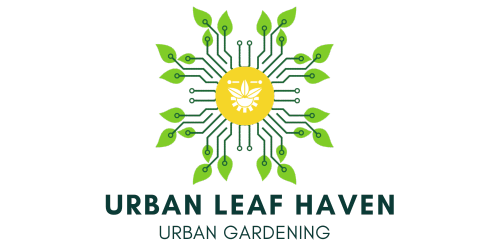Urban gardening is a wonderful way to reconnect with nature and cultivate your own space, but it can come with its fair share of challenges, especially when it comes to dealing with pests and insects. These unwanted visitors can wreak havoc on your carefully nurtured plants, leaving you frustrated and wondering how to effectively manage them. But fear not, because in this article, we will explore some friendly and practical tips to help you deal with pests and insects in your urban garden, ensuring your plants thrive and you can enjoy the fruits of your labor. So let’s get started and create a pest-free oasis in your urban paradise!

Choosing the Right Plants
When it comes to creating a successful garden, one of the first steps is choosing the right plants. Researching plant varieties is key to ensuring that you select plants that are well-suited for your urban garden. Consider factors such as sunlight requirements, soil conditions, and climate compatibility. By choosing plants that are well-adapted to the unique conditions of urban gardening, you can help prevent pest issues before they even arise.
Another important aspect to consider is selecting pest-resistant plants. Some plants naturally have defense mechanisms that make them less attractive to pests. These plants often have strong scents or bitter tastes that deter insects. By incorporating pest-resistant plants into your garden, you can reduce the likelihood of pest problems and minimize the need for pesticides.
Maintaining a Healthy Garden
Once you have selected the right plants, maintaining a healthy garden is crucial for preventing pests and insects. Proper watering techniques play a significant role in plant health. It’s important to water your garden adequately, but not excessively. Overwatering can create stagnant conditions that attract pests, while underwatering can weaken the plants, making them more susceptible to attacks. Pay attention to the moisture needs of different plants and adjust your watering schedule accordingly.
Fertilizing and soil amendment are also important aspects of maintaining a healthy garden. Well-nourished plants are more resilient to pests and diseases. Use organic fertilizers to avoid harmful chemicals that can disrupt the balance of your garden ecosystem. Additionally, regularly adding organic matter to your soil not only improves its fertility but also promotes beneficial microbial activity, which can help ward off pests.
Practicing good crop rotation is another effective technique for maintaining a healthy garden. Many pests and diseases are host-specific, meaning they only target certain plant species. By rotating your crops each year, you can help break the pest and disease life cycles and reduce their impact on your garden. This practice also helps maintain soil health and nutrient balance.

Creating a Balanced Ecosystem
In order to create a balanced ecosystem in your garden, it is important to attract beneficial insects. These insects are natural predators of pests and can help keep the pest population in check. Planting flowers that attract pollinators, such as bees and butterflies, not only adds beauty to your garden but also encourages beneficial insects to visit. Additionally, providing shelter and water sources can further enhance the habitat for beneficial insects.
Using companion planting techniques is another effective way to create a balanced ecosystem. Companion planting involves strategically planting different species of plants together to create mutually beneficial relationships. For example, planting marigolds alongside vegetables can repel harmful nematodes, while planting basil near tomatoes can deter pests like aphids. By choosing the right companion plants, you can create a natural pest control system in your garden.
Physical Barriers and Traps
Installing physical barriers is a proactive approach to pest control. By physically blocking access to your plants, you can prevent pests from infesting them. This can be done using netting, fences, or row covers. Make sure the barriers are properly secured and check for any gaps or openings regularly to ensure their effectiveness.
Building insect traps can also help reduce pest populations in your garden. There are various types of traps available, such as sticky traps and pheromone traps, which attract and capture specific pests. These traps can be placed strategically throughout your garden to catch and monitor pests. Regularly inspect the traps and replace them as needed to maintain their effectiveness.

Natural Pest Control Methods
Introducing predators into your garden is an effective natural pest control method. Many insects, such as ladybugs and lacewings, are natural predators of common garden pests like aphids and caterpillars. You can purchase these beneficial insects or create habitats that attract them, such as providing nesting sites and flowering plants. By introducing predators, you harness the power of nature to keep pest populations in check.
Creating insect repellent sprays using natural ingredients is another way to deter pests. Garlic, hot peppers, and neem oil are commonly used ingredients in homemade repellent sprays. These sprays can be applied directly to plants or used as a preventive measure. However, it is important to test the spray on a small area of the plant first to avoid any damage.
Organic Pest Control Products
Using organic pest control products is a safe and environmentally friendly approach to managing pests. Neem oil is a popular organic pesticide derived from the neem tree. It has both insecticidal and repellent properties, making it effective against a wide range of pests. Applying neem oil to your plants can help deter pests, disrupt their life cycles, and reduce their damage.
Insecticidal soap is another organic pest control product that can be used to combat pests. It works by suffocating insects, causing them to die off. Insecticidal soap is safe for use on many types of plants and can be an effective solution for controlling aphids, mites, and other soft-bodied insects. Be sure to follow the instructions on the product label for proper application and dosage.
Diatomaceous earth is a natural substance made from the fossilized remains of microscopic algae. It has abrasive properties that damage the exoskeletons of insects, leading to their dehydration and death. Diatomaceous earth can be sprinkled around plants or applied directly to affected areas. It is particularly effective against crawling insects like slugs, snails, and ants.
Integrated Pest Management
Implementing an integrated pest management (IPM) approach is a holistic and sustainable method for managing pests. It involves a combination of strategies and techniques to prevent, monitor, and control pests. The first step of IPM is identifying pests and accurately diagnosing the problem. By correctly identifying the pests, you can implement targeted control measures.
Monitoring pest populations is an important aspect of IPM. Regularly inspect your plants for signs of pests, such as chewed leaves or droppings. By closely monitoring pest populations, you can take action before the infestation becomes severe. There are various tools and techniques available for monitoring, such as sticky traps and visual inspections.
Implementing control measures in an IPM program is done in a systematic manner. Start with the least harmful methods, such as handpicking pests or using physical barriers. If these methods are not effective, progress to organic pest control products or natural pest control methods. Only as a last resort, consider using chemical pesticides, and even then, choose low-toxicity options and follow the manufacturer’s instructions carefully.
Preventing Pests and Insects
Prevention is always better than cure when it comes to dealing with pests and insects. Sanitizing garden tools is an important preventive measure. Clean your tools regularly to remove any traces of pests or diseases. This helps prevent the spread of pests and diseases from one plant to another.
Maintaining cleanliness in your garden is also crucial. Remove any fallen leaves, debris, or dead plants as they can attract pests and provide breeding grounds. Weeds should also be regularly removed as they can harbor pests and compete with your desired plants for resources.
Proper waste management is another key aspect of preventing pests and insects. Dispose of garden waste properly, either by composting or by using designated green waste bins. Avoid leaving piles of organic matter or rotting fruits around your garden, as these can attract pests and create a conducive environment for them to thrive.
Early Detection and Intervention
Regularly inspecting plants is essential for early detection and intervention. Pay close attention to the leaves, stems, and undersides of plant foliage. Look for signs of damage, such as holes, discoloration, or wilting. If you notice any abnormalities, investigate further to identify the cause.
Removing infected plants as soon as possible is crucial to prevent the spread of pests and diseases. If a plant is heavily infested or diseased, it is often best to remove and destroy it to avoid further contamination. Make sure to dispose of the affected plants properly to prevent the pests from reinfesting other areas of your garden.
Isolating affected areas can also help prevent the spread of pests and insects. If you notice an infestation in a specific section of your garden, create a barrier around it to prevent the pests from spreading to other areas. This can be done using physical barriers or by placing sticky traps around the perimeter to catch any unsuspecting pests.
Seeking Professional Help
If you find yourself overwhelmed or unable to effectively manage pests and insects in your urban garden, it may be time to seek professional help. Consulting local gardening experts can provide you with valuable advice and guidance specific to your region and garden. They can help identify the pests, recommend appropriate control measures, and provide ongoing support.
Hiring pest control services is another option for dealing with stubborn or severe infestations. Professional pest control technicians have the expertise and resources to effectively manage pests and insects. They can assess the situation, develop a customized plan, and apply the necessary treatments to eliminate pests and restore the health of your garden.
In conclusion, dealing with pests and insects in urban gardening requires a comprehensive approach that encompasses choosing the right plants, maintaining a healthy garden, creating a balanced ecosystem, using physical barriers and traps, employing natural pest control methods, considering organic pest control products, implementing integrated pest management strategies, preventing pests and insects, practicing early detection and intervention, and seeking professional help when needed. By following these guidelines and being proactive in your pest management efforts, you can cultivate a thriving and pest-free urban garden.


